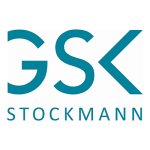Since the first opening of the overseas subsidiary of Bank of China in Luxembourg in 1979, the Grand Duchy has become a gateway to the EU for Chinese financial institutions and more generally has been brought into the sight of Chinese investors as the subsidiary of Bank of China in Luxembourg and the EU hubs of other Chinese banks which have been set up in Luxembourg in a later stage serve China-based investors that wish to invest in Europe.
The overseas subsidiaries of the Chinese banks have also expanded into capital market activities in Europe alongside asset and wealth management, and are actively involved in financing M&A deals which are originated by Chinese investors.
In 2011, the Luxembourg Stock Exchange (LuxSE) listed the first offshore RMB bonds, better known as Dim Sum bonds, issued in Europe. Since then the exchange between China and Luxembourg has experienced rapid growth, which led to fact that when Chinese investors plan to list renminbi (RMB) bonds in continental Europe today, the LuxSE is a natural choice.
Luxembourg is a pre-eminent hub within the EU for financial services activity connected to the Chinese market, and it is well positioned to act as a bridge into the RMB investment pool; as it has been doing for many years.
According to the OECD data, global foreign direct investment (FDI) flows dropped to $846 billion which corresponds to a decrease of 38% in 2020, the lowest level since 2005, as a consequence of the Covid-19 situation. The Covid-19 pandemic also posed several challenges to the economy of Luxembourg. In order to respond to the financial disadvantages caused by the Covid-19, the Luxembourg government established a financial support scheme for the companies which are in temporary financial difficulty, and implicated a series of tax measures to support companies with regards to direct and indirect tax payments. Investments in Luxembourg dropped considerably until mid-2020 alongside a global slowdown due to Brexit and the Covid-19 crisis. Recovery could be observed with a slow, but stable pace in the second half of 2020.
However, domestic constraints on Chinese outbound capital flows and tightening scrutiny of Chinese investments abroad have not helped the recovery of Chinese investment in Europe and Luxembourg after Covid-19 crisis. The lack of a recovery is also likely linked to China’s adherence to a zero-Covid strategy, which hindered cross-border travel and thus deal-making activities.
Regulations of investing
On December 30 2020, the EU and China reached an agreement in principle on the EU-China Comprehensive Agreement on Investment (CAI), which places an emphasis on providing access to the Chinese market for European investors.
Both sides have been continuing separate negotiations on investment protection to be completed within two years of the signature of the agreement, and on March 12 2021 the European Commission published the schedules of commitments agreed under the CAI. Ensuring fair treatment for EU companies in the Chinese market and enabling more cross-border deals between the EU and China, the CAI shall support a better balance in the EU–China trade relationship. The framework is likely to also play a key role in helping the Luxembourg and EU markets to recover.
However, the ratification of the agreement might face problems with the EU sanctions on China enforced in March 2021 over concerns about the human rights situation in Xinjiang and the Chinese counter-sanctions. In addition, Beijing’s imposition of a trade embargo on Lithuania in December 2021 is also likely to weigh on bilateral ties. As a result, the influence of the agreement remains uncertain in 2022.
As regards practical considerations for making investments in Luxembourg, in general no specific pre-approval process for M&A transactions exists but the deals may be subject to a posteriori approval process by the competent Luxembourg authority.
On September 15 2021, a bill (no. 7885) was adopted to implement Regulation (EU) 2019/452 of the European Parliament and of the Council of March 19 2019, introducing a screening mechanism with a mandatory notification and pre-approval requirement for certain foreign direct investments made by non-European investors in a Luxembourg entity operating in a critical sector in the territory of Luxembourg. The bill will affect Chinese investors that wish to invest in a Luxembourg entity conducting activities on the Luxembourg territory regarded as critical in various sectors (e.g. energy, health, defence, finance, telecoms, data and media) by influencing which sectors Chinese investors focus on.
Furthermore, given the importance of the investment fund industry in M&A transactions, the entry into force of EU Regulation 2019/2088 of November 27 2019 on sustainability-related disclosure in the financial services sector and Regulation 2020/852 of June 2020 on the establishment of a framework to facilitate sustainable investment, may indirectly affect the M&A market as well as strategies of Chinese outbound investments.
The implementation of effective environmental, social and governance (ESG) policies and strategies by target companies may attract more green and ESG-standardised investment from Chinese investors. We have already seen that Chinese investment in Europe has become more focused on greenfield projects. In 2021, greenfield investment reached €3.3 billion, the highest recorded value, making up almost a third of all Chinese FDI.
“Luxembourg is a pre-eminent hub within the EU for financial services activity connected to the Chinese market, and it is well positioned to act as a bridge into the RMB investment pool” |
On January 20 2022, the Luxembourg Ministry of Economy launched a public consultation on the possible implementation of a merger control regime in Luxembourg, which ended on March 31 2022. The consultation enquires mainly about the design of the notification procedure and the relevant merger control thresholds.
The purpose of such a regime would be to give the Competition Council the power and the tools to carry out an ex-ante control of certain M&A or other alignments between undertakings which may have a restrictive effect on competition in Luxembourg, and to allow for early detection of such threats to competition, potentially limiting damage to consumers and undertakings alike. The Ministry of Economy has working in close collaboration with all affected ministerial departments on this subject, and is expecting to introduce a bill after completion of preparatory works in 2022.
Regardless of the approach ultimately chosen, it appears likely that any future merger control regime will target transactions with a discernible competitive impact in Luxembourg, with the aim of protecting Luxembourg consumers first and foremost. Chinese investors are advised to stay close to such upcoming bill.
As regards the merger clearance process, the Luxembourg law of October 23 2011 on competition designated the Competition Council as the competent authority to scrutinise and analyse mergers and acquisitions taking place in Luxembourg and involving Luxembourg entities. Although it is a post-closing merger clearance process, the Council has indicated its readiness to encourage market participants to run a pre-merger control check where feasible. This possibility therefore exists for investors looking to acquire a Luxembourg-based target.
As for the restrictions on investment, specific rules may apply in certain sectors. For example, in acquisitions in the financial sector (e.g. banks or asset managers), an investor must notify its intention to acquire a certain threshold in a Luxembourg bank or financial sector entity to the regulator, the Commission de Surveillance du Secteur Financier (CSSF).
The CSSF has the right to oppose the transaction based on reasonable grounds and certain legal criteria. Other restrictions apply in certain industries or on acquisitions of companies with securities admitted to trading on a regulated market in Luxembourg where the CSSF, being the competent authority, shall supervise bids impartially and independently of all parties to the bids. The related rules are established by the law of May 19 2006 implementing Directive 2004/25/EU on takeover bids, as amended (also known as the Takeover Law).
Generally, the abovementioned rules apply to Chinese investors and investments, and there are no currency restrictions and no specific contractual provisions arise in relation to Chinese investment.
Investment structures
The most common legal entities used for Chinese investment into Luxembourg are private limited liability companies (i.e. société à responsabilité limitée or SARL) or public limited liability companies (i.e. société anonyme or SA). Both are commonly used as structures for acquisition of companies.
The SARL has a lower minimum share capital and seems to be favoured over the SA. As regards to investment activities by funds established by Chinese investors in Luxembourg, the most common structure seems to be the reserved alternative investment fund (RAIF), and also, to a certain extent, the specialised investment fund (SIF). Both are set up as limited partnerships in the form of société en commandite simple or société en commandite spéciale. In addition, an investment company in risk capital (i.e. société d’investissement en capital à risqué or SICAR) is also commonly used by investors including Chinese investors to pool money for investment.
The key requirement for setting up and using any of these vehicles is the establishment of a certain entity in Luxembourg with sufficient substance. A minimum share capital needs to be provided to the Luxembourg vehicle and management procedures need to be put in place. More specifically, a majority of the management members of the vehicle shall be Luxembourg resident and regular board meetings shall be held in Luxembourg, to ensure decisions are made in Luxembourg.
In establishing investment funds that carry out M&A activities, investors must verify that these comply with the regime of alternative investment fund managers and obtain the applicable approvals from of the CSSF. While RAIFs are not subject to CSSF approval, the SIF and SICAR investment vehicles must be pre-approved by the CSSF before they can begin their business activities.
Dispute resolution
The most commonly used dispute resolution mechanisms are court litigation and arbitration.
Arbitration is generally favoured by foreign investors because arbitral awards are easier to enforce than court judgments, more flexible and provide more privacy. By 2020, Luxembourg was party to over 100 bilateral investment protection treaties including a treaty with China, the latest version of which entered into force in 2009. Luxembourg’s arbitration courts are used to international agreements, given Luxembourg has been increasingly used as a platform for cross-border investments, joint-venture vehicles and investment funds carrying out M&A activities worldwide.
As regards litigation, Luxembourg courts typically review disputes in a neutral and independent manner within a normal duration of time and issue titles for enforcement useable in Luxembourg and abroad as far as other jurisdictions are covered under respective regulations and treaties.
One of the most important pieces of regulation in this respect is the Recast Brussels Regulation: Regulation (EU) No. 1215/2012 of the European Parliament and of the Council of December 12 2012 on jurisdiction and the recognition and enforcement of judgments in civil and commercial matters.
Another is the Convention on jurisdiction and the recognition and enforcement of judgments in civil and commercial matters (also known as the Lugano Convention). Local civil procedure code and case law are also of importance.
However, parties in Luxembourg tend to solve their disputes outside arbitration and courts. This is to maintain confidentiality and enable a smooth continuation of business in Luxembourg.
Fund structuring
Regarding taxation, Luxembourg benefits from an extended network of double taxation treaties advantageous for FDI into and out of Luxembourg. By applicating the European parent/subsidiary directive, typically no withholding tax applies on dividends. The corporate income tax rate in Luxembourg is 17%. No specific FDI tax incentive schemes are in place, nor are there any specific reciprocal tax arrangements between Luxembourg and China.
On March 21 2020, the Luxembourg parliament passed a law implementing Council Directive (EU) 2018/822 of May 25 2018 amending Directive 2011/16/EU as regards mandatory automatic exchange of information in the field of taxation in relation to reportable cross-border arrangements (also known as the DAC6 Law), which entered into force on July 1 2020. It introduces a new obligation for intermediaries to disclose to the Luxembourg tax authorities any cross-border arrangements that meet a hallmark and is expected to also have an impact on cross-border M&A structuring by Chinese investors, as previous method of cross-border M&A tax structuring in terms of the review of the share purchase agreement, tax structuring upon acquisition, cash repatriation strategies upon sale, etc., need to be re-considered for various purposes and in particular transparency.
On October 14 2020, the Minister of Finance of Luxembourg submitted the draft budget law for the year 2021 (Draft Budget Law) to the Luxembourg Parliament, which, among other things, proposes to introduce a 20% withholding tax on income deriving from real estate located in Luxembourg held by certain Luxembourg investment funds directly or through transparent entities or common funds. The Draft Budget Law was adopted by the Luxembourg parliament on December 17 2020 and entered into force on January 1 2021 (for most of the tax measures).
In relation to Covid-19, Luxembourg’s Ministry of Finance announced on March 17 2020 the relaxation of certain tax payment deadlines for companies and self-employed individuals affected by the Covid-19 outbreak. Taxpayers experiencing liquidity problems are entitled to ask for a cancellation of advance tax payments for the first two quarters of 2020. Additionally, the same categories of taxpayer will be given up to four months to pay certain taxes due after February 29 2020, without incurring late payment interest charges. These measures provided more relaxation in terms of cash flows for Chinese investors coming in and having business Luxembourg during the Covid-19 pandemic.
On December 22 2021, the EU Commission issued a draft Council Directive (also known as the ATAD 3) laying down rules to prevent the misuse of shell entities for tax purposes and amending Directive 2011/16/EU (DAC), which would have to be implemented and applied by member states from January 1 2024.
The ATAD 3 provides a multi-step test to facilitate their identification, and introduces an automatic exchange of information on all in-scope entities by amending Directive 2011/16/EU. It is expected to have an impact on EU corporate taxpayers, including Chinese investors who set up legal entities in EU or Luxembourg that have no or only minimal substance, and that perform no actual economic activity, which poses a risk of being used for improper tax purposes, such as tax evasion and avoidance.
Outlook
The outlook for Chinese investment into Luxembourg remains fairly optimistic, as we are of the opinion that legal and political stability of Luxembourg’s regulatory and legislative framework, as well as growing fund industry and financial sector, are still the main considerations for Chinese investors to make investment decisions even during pandemics.
However, strict capital controls in China, financial deleveraging and Covid-19 restrictions makes a significant rebound for Chinese investment into Luxembourg in 2022 difficult. The war in Ukraine and expanding screening regimes and scrutiny of Chinese investment in the EU will create additional headwinds, and might slow down the Chinese investment in and through Luxembourg.
The exact impact of the war in Ukraine on China’s investment will depend on the development of the crisis and the stance the Chinese government ends up taking towards the conflict. However, the war has already triggered intense debates on critical infrastructure and resilience in Europe, which could in turn increase scrutiny of Chinese investment in a number of sectors including infrastructure, transport and energy.
Investments focusing on certain sectors, such as consumer goods and infrastructure, are more likely to attract attention and interests from Chinese investors. Nevertheless, environmental, social and governance (ESG) and green investment is going to be a major topic and one big potential growth in terms of opportunities going forward.
Chinese government has been more and more encouraging sustainable investment practices and prioritising ESG factors in overseas investment, since the ‘Belt and Road Initiative’ was incorporated into the Constitution of China in 2017.
A trend where ESG factors and consideration will play an important part in investment decision making is expected, and Chinese investors will need to consider ESG standards in evaluating outbound investment opportunities in Luxembourg and the EU. Chinese investors that are facing ESG disconnect and potential ESG risks for the moment will have to seek alignment with counterparties to solve ESG integration issues by acquiring or merging with ESG-adjacent assets and activities. Expertise in asset management relating to China and strong levels of early movement in green finance marks Luxembourg’s position as a hub for supporting green investment flows from China to Luxembourg.



